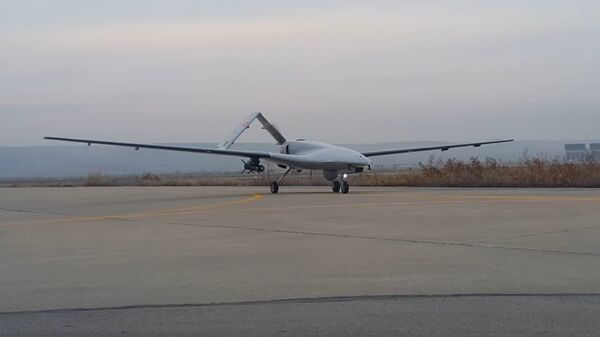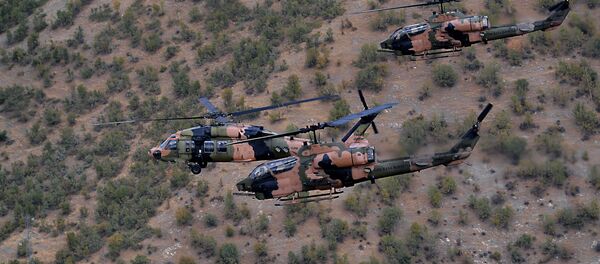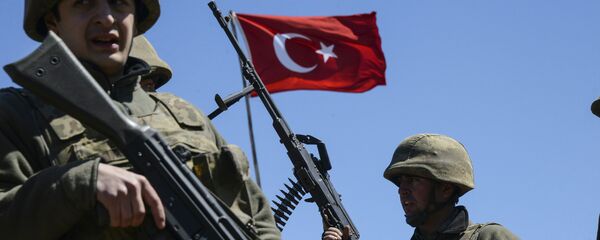Since January, dozens of Turkish residents have been killed in cities along the Syrian border, victims of rocket attacks believed to have been carried out by Daesh, also known as IS/Islamic State. In an effort to counter these attacks, the Turkish military will fast-track two programs aimed at developing armed drones.
"The best method is to monitor the region [under ISIS’ control] and mobile threats, and to have capabilities to hit the threat at its origin…like armed drones," said Turkey’s chief procurement official, Ismail Demir, according to Defense News.
The acceleration has already resulted in the successful testing of the Bayraktar UAV at the end of the last month. The device uses smart missiles, known as MAM-L and MAM-Cs, with a maximum payload of 650 kilograms. The drone will soon include the Turkish-made BSI-101 signals intelligence (SIGINT) system, which will replace current American versions.
"We are so proud…with tears in our eyes," Demir tweeted following the Bayraktar’s first test.
The military is also working on an armed version of its Anka medium-altitude, long-endurance surveillance drone. With a payload of 200 kilograms, the UAV can operate at an altitude of 30,000 ft. for up to 24 hours.
The armed variant, known as the Anka S, will be feature satellite communication capabilities and will be delivered by Turkish Aerospace Industries by 2017.
In the meantime, Ankara is relying on American MQ-1 Predator drones to combat the extremist group. Flying out of Incirlik Air Base, the aircraft have taken out multiple Daesh targets this month, alone.
Daesh attacks have struck several towns in southeastern Turkey, Kilis in particular. Speaking to Radio Sputnik, president of the local Commerce and Industry Chamber Murat Sakar discussed the ongoing violence.
"We have very serious security problems in Kilis where children stay out of schools and people prefer to stay indoors. Storeowners are worried about this regular shelling and many companies have rolled back their investment activity there," Sakar said.
"This is by no means a coincidence because Kilis is a strategic town hosting an estimated 90,000 Syrian refugees – more than in any other place."
On Thursday, former-Turkish Prime Minister Ahmet Davutoglu indicated that Ankara would send ground troops into Syria to address the situation, but experts doubt this assertion.
"Davutoglu’s comments clearly contradict his earlier remarks. This [change] has been primarily caused by the rockets exploding in Kilis. There are victims, including civilians, occasionally causing public outrage," retired Brigadier General Haldun Solmazturk told Sputnik.
"I think, no matter what, Turkey will not send its armed forces unilaterally. Turkey’s unilateral involvement in Syria without international backing is out of the question."





